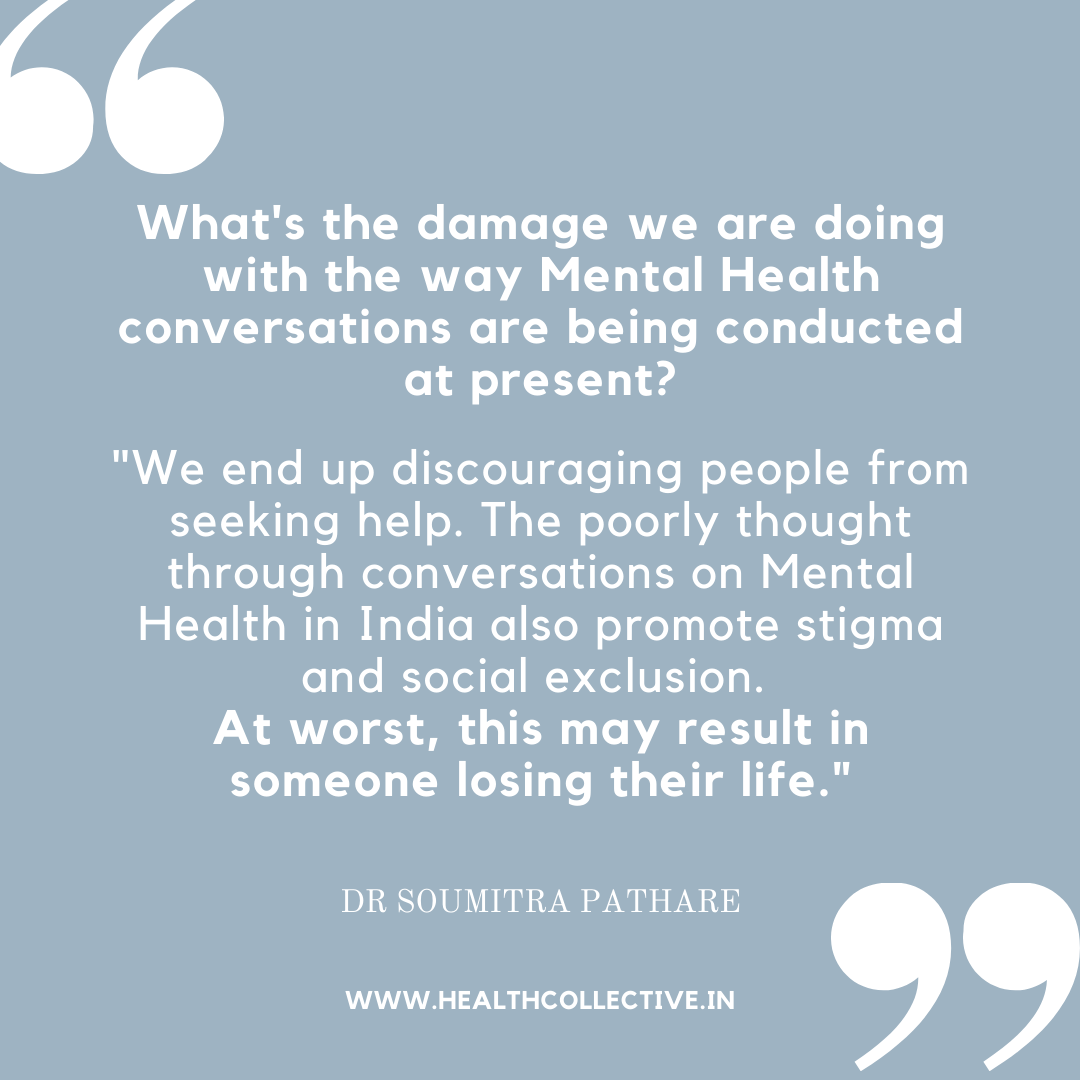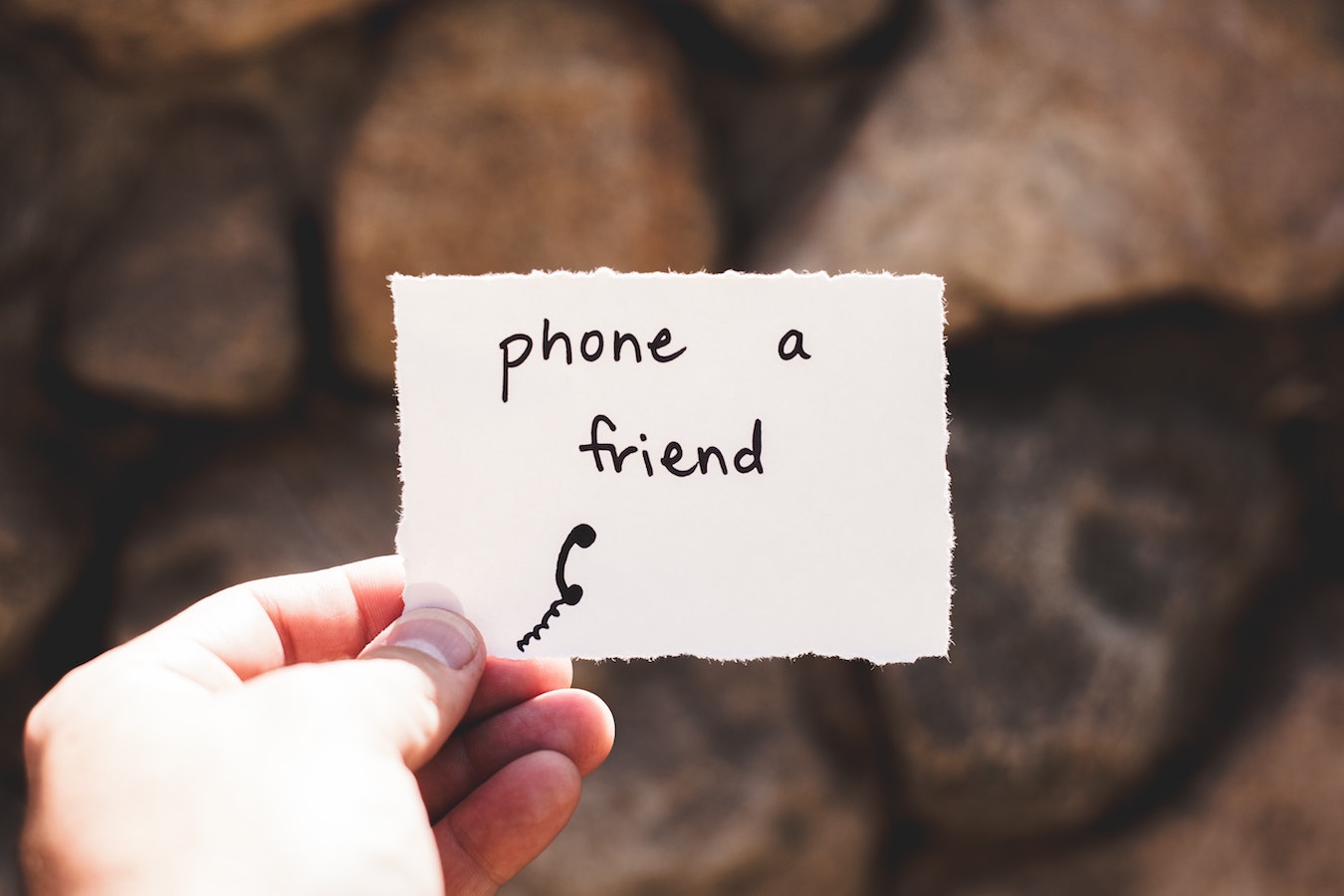Five Tips to Talk About Mental Health Responsibly
We know the feeling — things are moving so fast that it’s sometimes hard to keep up with all the guidelines on commenting/ sharing responsibly when it comes to a topic you are so passionate about… A topic that’s often in the middle of a blindingly urgent news cycle, a news cycle that itself doesn’t seem to care about any collateral damage left in its wake.
But you know what? We need to do better.
Why is it important to do better in our Mental Health conversations in India?
Tanmoy Goswami, a correspondent who has been very vocal about his own journey and experience with Depression, shares with The Health Collective:
“The mental health conversation has gained unprecedented momentum. With a lot of hitherto suppressed voices coming out and sharing their stories on social media, the mental health ecosystem is closer than ever to being democratised – beyond the control of a few psychiatrists and psychologists. Globally too, there’s a movement to center the mental health conversation on lived experience. Personally, my credo is: ‘Lived experience IS expertise’.
But this comes with a serious responsibility. If we all want to claim that we are experts by experience, that means we have to hold ourselves accountable to a greater standard. For centuries, only doctors have taken the Hippocratic Oath, whose first principle is: “First, do no harm.”
Each one of us participating in the mental health conversation and sharing insights from our own lives needs to understand that their words can have tremendous impact on people desperate for advice. So in everything we say and do, we must vow to follow the principle of “First, do no harm”.

What does this mean in practice? It means clearly stating your locus. Are you a doctor? An advocate or activist? A journalist? A user survivor? State your locus and your affiliation clearly so that those following you know exactly where you are coming from and don’t mistake lived experience as medical advice.There is a fine line between democracy and anarchy is all social movements. Being honest and accountable is the first step to achieving that in the mental health movement.”
ALSO READ: WHAT TO DO IF THE NEWS IS TRIGGERING ANXIETY
So what’s the damage we’re doing with the way Mental Health conversations are being conducted in India (in the mainstream media or on social media or Whatsapp groups and so on?
“We end up discouraging people from seeking help. The poorly thought through conversations on MH in India also promote stigma and social exclusion. At worst, this may result in someone losing their life,” Dr Pathare tells The Health Collective.

Goswami says, “The damage is incalculable. Let me focus on just two of them:
i) Time and again, the mental health conversation keeps becoming celebrity-centred. Not only can ‘motivational’ stories on celebrities put off the person on the street who has to struggle with vastly different realities in life, news around celebrities is prone to lapsing into a media circus, which inevitably leads to a barrage of myths, misinformation, and crude, triggering news stories that take the discourse back decades.
ALSO READ: SELF-CARE IN TROUBLED TIMES
So how can you ensure we’re champions in this movement around Mental Health, while responding to all the news that’s coming in thick and fast? Start by learning how to comment responsibly about Mental Health / Illness.
Here are Five Tips that should be common sense but we could all use a crash course in:
- Remember, first, to do no harm
- That means no sharing confidential info. This is non-negotiable
- No stigmatising
- Refrain from judgement
- Mind your language – words hurt
- A little empathy goes a long way
- Hard to think through? What if the person/ celebrity/ case you’re commenting on was your best friend? Your close relative? You? Would that change your attitude/ perspective?
- What is Empathy? How is it different from Sympathy?
Watch a video by Brene Brown that explains further
- Do you have lived experience or first-hand knowledge of what you’re talking about?
- If Yes, then do share as much as you would like
- If No, are you commenting as an educated by-stander or with expertise? It’s helpful to provide that context up front
- Have you read or educated yourself on either the condition you’re talking about? OR the case you’re talking about?
- If Yes, then do share with as much context as you can share
- If No, then that’s a clear next step. It’s also ok not to have a comment/ opinion/ hot take
- Are you helping to demystify a subject that is still very taboo? Are you helping clear up myths/ misconceptions? Or are you perpetuating them?
- Examine your own biases and pre-conceived ideas
Do you have any tips you want to share? Get in touch! Tweet @healthcollectif
Feature Image by RawPixel.com



Pingback: Let’s Talk Mental Health: A Series of Conversations – The Health Collective India
Pingback: Let’s Talk Mental Health: We Need to Do Better – The Health Collective India
Pingback: Anxiety and Us: What We Need to Know – The Health Collective India